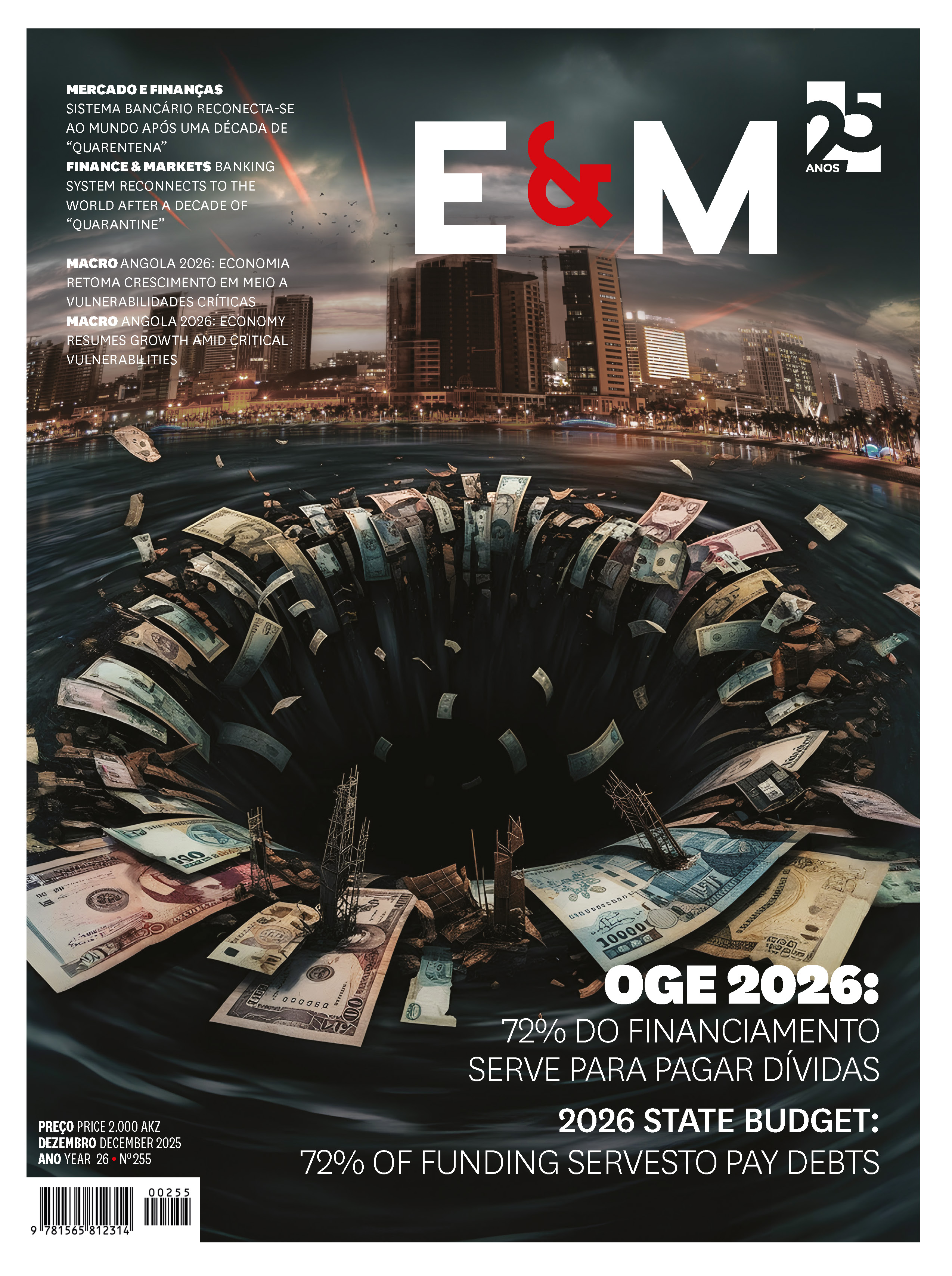De tudo quanto se escreveu e disse sobre as causas dessa turbulência, julgo poder tirar cinco conclusões mais ou menos consensuais.
Primeira ilação: não existe moeda forte numa economia fraca. Portanto, continuar a assumir uma política de Kwanza forte pode não ser muito avisado.
Segunda ilação: a gestão cambial baseada na taxa flutuante não está, em si, errada. Regressar a uma gestão administrativa da moeda externa seria uma emenda pior do que o soneto. Não quer dizer que a gestão de câmbio flutuante não deva ser balizada, como acontece na maioria dos países que seguem essa metodologia.
Terceira ilação: utilizar a taxa de juro como instrumento de controlo da inflação na nossa realidade não é tão eficaz como dizem os manuais escolares, porque os canais de transmissão são fracos, uma vez que a procura agregada tem pouca ou nenhuma correlação com o crédito à economia (o mercado financeiro é pouco desenvolvido). Por outro lado, o Estado é o grande consumidor de recursos e por natureza é também insensível às variações das taxas de juro ou de câmbio, induzidas pelo banco central.
Outro problema tem a ver com a forma como o Estado se financia e usa os recursos. Não havendo poupança interna, o Estado recorre à poupança externa, contraindo dívida. Se não for frugal no uso dos recursos captados com dívida externa, arrisca sempre cair na armadilha da dívida (que foi, em parte, o que aconteceu). Daí haver uma quarta ilação: o Estado tem de gastar menos e melhor, ajustando a despesa pública, incluindo a despesa de capital, à sua real capacidade de solver dívida no médio e longo prazo.
Qualquer moeda deve cumprir três funções básicas: unidade de conta, meio de pagamento e reserva de valor. Uma vez que o Kwanza nunca funcionou como reserva de valor, podemos tirar uma quinta ilação: permitir o uso de uma moeda forte como instrumento de aforramento, é um mal menor que faz aumentar a confiança no sistema financeiro, aliviando a pressão para expatriar moeda e levando o angolano a fazer poupança no seu próprio país. Não vem mal algum ao mundo, um país em desenvolvimento, adoptar uma moeda forte para coadjuvar a sua moeda nacional.
Não estou a concluir com isso que, seguindo estas cinco ilações básicas, se resolva tudo. Mas seria um bom começo assumir princípios básicos na macrogestão económica do país, porque, com isso e com o pilar da Justiça fortalecido, o resto vem por acréscimo. Não há boa gestão macroeconómica que não seja baseada em princípios e a primeira coisa que os políticos têm de fazer é porem-se de acordo quanto aos princípios macroeconómicos. E evitar que, enquanto a política monetária tira água do bote, a política fiscal continue a baldear insistentemente água para dentro do bote. Porque a política monetária e a política fiscal têm de actuar como irmãs siamesas.
Leia o artigo completo na edição de Agosto, já disponível no aplicativo E&M para Android e em login (appeconomiaemercado.com).
A turbulent month
June 2023 will be marked in Angola's economic trajectory as a month of great economic turbulence. From all that has been written and said about the causes of this turbulence, I believe I can draw five more or less consensual conclusions.
The first is that there is no such thing as a strong currency in a weak economy. Therefore, continuing to pursue a strong Kwanza policy may not be wise.
The second conclusion is that exchange rate management based on flexible rates is not in itself wrong. Returning to administrative management of the foreign exchange rate would be a much worse alternative. This is not to say that flexible exchange rate management should not be benchmarked, as it is in most countries that follow this methodology.
Third, using the interest rate as a tool to control inflation in our reality is not as effective as the textbooks say because the transmission channels are weak, since aggregate demand has little or no correlation with credit to the economy (the financial market is poorly developed). On the other hand, the State is the major consumer of resources and by nature is also insensitive to central bank-induced changes in interest or exchange rates.
Another issue has to do with the way the State finances itself and uses resources. In the absence of domestic savings, the State resorts to external savings by contracting debt. If it is not frugal in the use of the resources raised with external debt, it always risks falling into the debt trap (which is partly what happened). Hence a fourth conclusion: the State must spend less and better by adjusting public expenditure, including capital expenditure, to its real capacity to pay off debt in the medium and long term.
Any currency must fulfill three basic functions: unit of account, means of payment and store of value. Since the Kwanza has never functioned as a store of value, we can draw a fifth conclusion: allowing the use of a hard currency as a savings instrument is a lesser evil that increases confidence in the financial system, thus relieving the pressure to expatriate currency and leading Angolans to save in their own country. There is no harm in a developing country adopting a strong currency to support its national currency.
I am not implying that following these five basic lessons will solve everything. But it would be a good start to implement basic principles in the economic macro-management of the country, because with that and with a strengthened pillar of Justice the rest will come as an addition. There is no good macroeconomic management that is not based on principles and the first thing politicians have to do is agree on macroeconomic principles and prevent the fiscal policy from persistently pouring water into the boat while the monetary policy takes water out of the boat; because monetary policy and fiscal policy have to act like Siamese sisters.
Read the full article in the August issue, now available on the E&M app for Android and at login (appeconomiaemercado.com).
%20-%20BAI%20Site%20Agosto%20%20(1).png)











.jpg)

